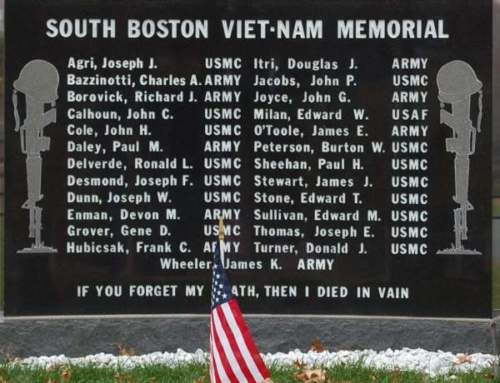Letters to the Editor
By Raymond L. Flynn, Former Mayor of Boston and Former U.S. Ambassador to the Vatican.
After attending Mass on Sunday at St. Brigid Church in South Boston, one of the parishioners came over to me and said, “Mr. Mayor, I heard you on WBZ radio last night and really liked what you had to say about several current important issues, especially the call you received from a family member of former Massachusetts AFL-CIO President Arthur Osborn. As you said, many union workers are being mistreated by big companies, which is very unfair. National Grid is a public utility and its workers’ families should not be denied health care during the ‘lockout’ and striking hotel workers had a valid concern for a just living wage.”
I follow national politics very closely and strongly feel that both the Republican and Democratic parties are obligated to Wall Street and “Big Business” campaign contributions, so average citizens are too often overlooked when issues like equitable tax sharing, paying for health care and prescription drugs arise, for example.
Today, neither party stands up for the working class or middle-income families. Even national television channels take an extreme left-wing or right-wing political course. It’s all about their opinion, not the facts. Sadly, I see no moderate point of view in the media, which unfortunately inf luences elections and public policy.
This slanted media coverage is even prominent in its reporting of important social, moral and cultural issues. Most of the information the public receives is the opinion of the news station, reporter and even sponsor.
Most public figures are smart enough to realize this bias, so they see no advantage in challenging this and often reluctantly go along with it. Certainly we have many fine and honest reporters and commentators, but it’s often what is omitted in the reported story that is most problematic, in my opinion. But it can go both ways for example.
When a public person fails to respond to an inaccurate comment, the public can only conclude that the statement must be true. I have met many capable journalists, well-informed public officials and spokespersons, but it’s rare to meet somebody who knows and understands both.
Being a successful corporate official or a religious leader doesn’t necessarily qualify you to be an effective political or media strategist, but in too many cases this is what happens in the real world. And being a good writer doesn’t necessarily qualify a person to explain complex political, business or religious policy. In my years of experiences at the Vatican and traveling with the pope, I often saw how a story got unintentionally misreported; good people, but with entirely different career paths and perspectives.
As I said on WBZ on Saturday, this week I will be Albany, the capital of New York, to meet with various officials to discuss ideas on how various leaders can share accurate information, which the public is longing for and deserves.
Division and sensationalism serve no good public service nor make our country better. But like every relationship, respect and cooperation can help build a solid foundation. Frankly, this is as urgent a time as ever.





